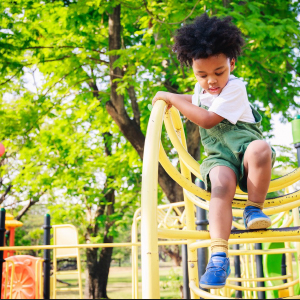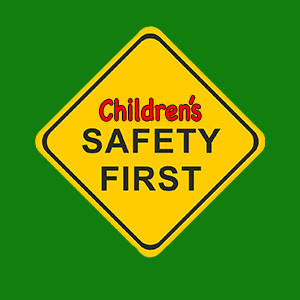Building Language Skills at The Academy of Burkitt Commons
Have you noticed your child coming home after a day at The Academy of Burkitt Commons with new words that amaze you? Well, don’t be amazed because children’s brains are highly receptive to new information at this age. At The Academy, we have several effective strategies that we use to enhance language development in young children. (The more you learn about The Academy, the more you are going to love it.)
The Academy of Burkitt Language Building Techniques
We want to share the language building techniques we use at daycare so you can use them at home too. Encouraging your child to interact with you and siblings at home enforces what we do at daycare. In this blog, we share four techniques with you.
 1. Sing Songs and Rhymes
1. Sing Songs and Rhymes
We integrate songs and rhymes into our day, every day. They introduce children to the sounds and rhythms of the language in a fun and engaging way. Repetition inherent in songs and rhymes also helps children remember words and phrases, aiding in vocabulary acquisition. Singing songs together at home (with a little dancing thrown in too) is as much fun as it is educational.
2. Create a Language-Rich Environment
A language-rich environment is a must. We surround the children with spoken and written words throughout the day. We literally immerse them in words—reading aloud, labeling objects around the classroom, and displaying printed words at eye level. This helps expand vocabulary and the understanding of language structure.
3. Read-Aloud Interactively
Interactive read-aloud sessions are more than just reading to children; they involve engaging children with the text. We ask predictive questions, encourage children to talk about the story, and connect the book’s events to the child’s own experiences. This actively involves children in the storytelling process, which promotes comprehension and critical thinking.
4. Encourage Expressive Language
By asking open-ended questions that require more than yes or no answers, we encourage expressive language. For instance, instead of asking, “Did you have fun today?” we might ask, “What was your favorite part of the day, and why?” Such questions prompt children to think and verbalize their thoughts, fostering their expressive language skills.
Call The Academy of Burkitt Commons Today for Enrollment Information
Preparing Children for Kindergarten – A Crucial Task for Daycares and Preschools
Preparing children for kindergarten and academic success begins long before they enter the doors of a traditional school setting. Daycares and preschools play an important role in getting children ready for kindergarten. With early childhood education programs, preschools lay the foundation for children to thrive academically.
 The Academy Is a Good Investment in Preparing Children for Kindergarten
The Academy Is a Good Investment in Preparing Children for Kindergarten
Parents know that The Academy is a good invest in quality early childhood education. The Academy helps ensure that all the children have a strong start in kindergarten and school. We even have a special program called Kindergarten Boot Camp that prepares children for kindergarten.
All our daycares provide a safe and nurturing environment for young children. And our programs help launch their future success in school by promoting social, emotional, and cognitive development.
Preparing Children for Kindergarten by Developing Social Skills
The Academy contributes to school and kindergarten readiness through the development of children’s social skills. Interacting with peers and adults in our daycare helps children learn to share, take turns, and resolve conflicts.
These skills are essential later in the classroom where children are expected to work cooperatively, follow instructions, and communicate effectively. By fostering positive social skills, we help children build the foundation for successful social interactions with others in the classroom.
Developing Emotional Skills
The Academy also focuses on promoting emotional development in young children. Children learn to regulate their emotions, express themselves effectively, and develop empathy and understanding towards others.
These emotional skills help a child manage stress, build resilience, and form positive relationships with teachers and peers. Our daycare programs create a supportive and nurturing environment where children can learn to handle their emotions.
Developing Cognitive Skills
Developing cognitive skills through stimulating and enriching learning experiences is also a primary focus at the Academy. Through play-based activities, educational games, and hands-on exploration, we expose children to concepts such as numbers, letters, colors, and shapes.
These early learning experiences help children develop important cognitive skills such as critical thinking, problem-solving, and creativity. By introducing children to age-appropriate educational activities, daycare programs help children develop a love for learning and a curiosity about the world around them.
Parent’s Important Role in Early Childhood Learning
Parental involvement plays a crucial role in a child’s early childhood learning and development. Research consistently shows that when parents are actively involved in their child’s education, the child is more likely to succeed academically, socially, and emotionally.
Getting Involved in Your Child’s Early Childhood Learning
 Parental involvement in early childhood learning has a very positive impact on a child’s academic, social, and emotional development. But what does involvement look like? It means spending time with your child in educational activities. This can include reading to your child, coloring together, playing games, going to the zoo, and so much more.
Parental involvement in early childhood learning has a very positive impact on a child’s academic, social, and emotional development. But what does involvement look like? It means spending time with your child in educational activities. This can include reading to your child, coloring together, playing games, going to the zoo, and so much more.
Building a Partnership Between Home and Daycare
When parents are actively engaged in their child’s education, they can provide support and encouragement. Establishing regular communication with teachers and daycare staff allows you to stay informed about your child’s progress. Then you can identify areas where your child may need additional help or practice. Together you can help your child develop confidence, resilience, ana d social and academic skills.
At The Academy we encourage family involvement by offering unique opportunities for families to build a foundation for healthy relationships and emotional well-being. We take pride in recognizing and supporting the wonderful role of family in a child’s development. Learn more about our Seasonal Programs with activities for the whole family.
Being a Role Models
Parents can serve as positive role models for their children by demonstrating the value of education and lifelong learning. By showing an interest in learning yourself and doing educational activities with your child, you can instill a love of learning that will benefit your child for a lifetime.
The Academy Is One of the Best Early Childhood Learning Center in Middle Tennessee
We have locations in Nashville, Franklin, Brentwood, Hendersonville, Mt. Juliet, Murfreesboro, Nolensville, and Spring Hill. The Academy has the highest rating (3 stars) from The Tennessee Star-Quality Child Care Program.
Outdoor Learning at The Academy

Outdoor learning, also known as nature-based education, has gained recognition as a valuable approach to early childhood education. This approach uses the outdoor environments to foster children’s connection to nature, and promote holistic development. Nature-based learning is one of the cornerstones of The Academy curriculum. We have outdoor activities daily (as weather permits).
Key Benefits of Outdoor Learning
Nature-based education can provide a child with many benefits. Overall, outdoor learning offers a rich and diverse learning environment that can stimulate children’s curiosity, creativity, problem-solving skills, and love for nature.
Spending Time Outdoors Increases the Appreciation for Nature
One of the key benefits of outdoor learning is the opportunity for children to engage with the natural world in a meaningful and hands-on way. Nature-based learning allows children to observe and interact with plants, animals, weather patterns, and natural phenomena. This hands-on learning can help children develop a deep appreciation for the beauty and complexity of the natural world.
Outdoor Learning Helps Develop Many Skills through Physical Activity
Outdoor learning also offers numerous physical, cognitive, and social-emotional benefits for children. Spending time outdoors can promote sensory exploration and develop motor development.
Research has shown that outdoor play can boost children’s creativity, problem-solving abilities, and cognitive skills. As opposed to the classroom environment, the unstructured nature of the outdoors can foster social skills such as collaboration, communication, and conflict resolution.
Spending Meaningful Time Outdoors Can Reduce Stress and Improve Mood
Studies show that spending time in natural settings can reduce stress, improve mood, and enhance concentration. Recently our children had so much fun planting seeds. Simply digging in the dirt, feeling the sun and the breeze, and smelling the scents of spring brought a sense of calm and focused attention to the children.
The Academy Integrates Outdoor Learning with Traditional Childhood Learning Programs
By integrating nature-based education into our award-winning curriculum, we create engaging and meaningful learning experiences for your child. We invite your family to join our family. The Academy has daycare locations near you.
The Best Child Care Nolensville Has to Offer
 As one of the best child care centers in Nolensville, TN we know that the safety and well-being of your child is your number one concern. And we take that very seriously. Your child’s safety is not an afterthought at The Academy. Our facilities are built, from the ground up, with children’s safety in mind. Unlike a house, our learning centers are built and furnished for children.
As one of the best child care centers in Nolensville, TN we know that the safety and well-being of your child is your number one concern. And we take that very seriously. Your child’s safety is not an afterthought at The Academy. Our facilities are built, from the ground up, with children’s safety in mind. Unlike a house, our learning centers are built and furnished for children.
Keeping Your Children Safe at Home
Children are basically curious, and they are quite the little explorers. As they explore, they are also taking risks because they are not old enough to recognize danger.
Because homes are designed for adults, there are many potential dangers for children built into the home. Fortunately, there are many ways to make a home safer for a child.
9 Safety Gadgets to Protect Your Child
Here are a few ways you can minimize dangerous risks in your home:
- Use outlet covers.
- Install cabinet and drawer locks.
- Anchor chests, dressers, and bookcases to the walls.
- Use foam or rubber corner protectors and edge cushion.
- Install door pinch guards.
- Use door knob covers.
- Install toilet locks.
- Use stove knob covers.
That should take care of most physical dangers in the house.
4 Steps You Can Take to Protect Your Child
A few simple steps can keep your child safe, such as:
- Locking windows and exterior doors.
- Tying up cords on blinds or drapes so a child cannot reach them.
- Keeping dangerous items, such as medicine, guns, and medicines, in a secure or locked cabinet.
- Supervising your child.
The Academy at Burkitt Commons – One of the Best Child Care Centers in Nolensville
The Academy at Burkitt Commons in Nolensville, TN is widely considered to be one of the best preschools in Nolensville. Our child care center offers the highest quality child care services with the most caring teaching staff you can find.
Technology in Preschool Education
In today’s digital age, the role of technology in preschool education is a topic of much debate. While screens can offer valuable educational content, as the leader in preschools in Nashville we’ve seen how excessive screen time can also have negative effects on young children’s development.
Understanding the Impact of Screen Time
Numerous studies highlight the potential risks of permitting young children to have excessive screen time. These risks include:
- delays in language development
- reduced attention span
- disrupted sleep patterns
- increased risk of obesity
The Role of Technology in Preschool Education at The Academy
At The Academy preschools, we integrate screen time into the curriculum when it’s appropriate for the age group. We realize it is crucial to strike the right balance between technology and other learning/play activities. And we know the importance of promoting healthy screen habits.
While screens can be valuable tools for learning, it’s best to use screens in a purposeful way and in moderation. We prioritize interactive and hands-on activities that stimulate children’s curiosity, creativity, and social skills over screen time.
Best Practices for Managing Technology in Preschool Education and at Home
To promote healthy screen habits at home, we suggest that parents adopt the same best practices that we use at The Academy preschools:
- Limit Screen Time: Set clear guidelines for the amount of time children spend in front of screens each day.
- Focus on Quality Content: Choose age-appropriate, educational content that aligns with preschool curriculum goals and encourages active engagement.
- Balance with Other Activities: Offer a variety of activities throughout the day, including outdoor play, art, music, and hands-on learning experiences.
- Encourage Co-Viewing: When screens are used, encourage adult supervision and interaction to facilitate learning and discussion.
Find The Academy Preschool Near You
If you are looking for a preschool near you, you are sure to find a location for The Academy near you. We have learning centers in these locations:
The Childcare Professionals Give Advice on How To Train a Baby to Fall Asleep on Its Own
 Does your baby wake up frequently in the night? Are you sleep deprived and longing for just one good night’s sleep? Our childcare professionals at The Academy have some sleep training tips for you. You can usually start this sleep training at four to six months old.
Does your baby wake up frequently in the night? Are you sleep deprived and longing for just one good night’s sleep? Our childcare professionals at The Academy have some sleep training tips for you. You can usually start this sleep training at four to six months old.
Establishing the Right Bedtime
First, set a bed time based on the time your baby shows signs of sleepiness (yawning, eye rubbing, and fussiness). Note that babies need sufficient exercise throughout the day to ensure they will be tired enough to go to sleep at night. That’s why our award-winning curriculum at The Academy provides sufficient activities for infants in our care.
Childcare Professionals Offer Several Methods To Train a Baby to Fall Asleep
There are several methods you can use. When using any method, before you put the baby in the crib, be sure the baby is not hungry and has a clean diaper. Also make sure the bedroom is dark, quiet, and comfortable temperature-wise.
Here are a few popular methods to try.
The Cry It Out Method (CIO)
The famous “Cry It Out” method often works the fastest. Put your baby to bed, say goodnight, and don’t take the baby out of the bed until morning (or the next scheduled feeding). Leaving the baby in the crib is necessary so they learn to fall asleep without assistance.
The Check and Console Method (C&C)
This method suggests you leave the baby in the crib and then re-enter the room at 5 or 10 minute intervals. Each time, you say a few soothing words to your baby but don’t linger. Increase the time between intervals each night.
The Chair Method
With this method, you put the baby in the crib and sit in a chair next to the crib. Leave the room when the baby falls asleep. If the baby wakes up, return to sit in the chair until the baby falls asleep again. Every few nights move the chair further away from the crib until you’re eventually out of the room.
Visit Us at The Academy and Meet our Childcare Professionals
How Top-Rated Preschools in Spring Hill Encourage a Child’s Natural Gifts
It’s December, and there is a lot of thought being given to gift giving. However, in this blog, we’re going to talk about a different kind of gifts – natural gifts. As one of the top-rated preschools in Spring Hill, we know a thing or two about how to encourage a child’s natural gifts.
Whether we’re talking about natural gifts academics, sports, art, music, or something else, a gift usually needs nurturing. Here are some strategies to do that.
Let Children Discover on their Own
Parents are more likely to see a child’s natural gift if they let the child uncover what is intriguing without direction from adults. A parent’s role can be to expose a child to places and things.
Once a child displays a definite interest, the parent can begin to provide the child with more age-appropriate resources. But give your child time to see if the interest is just fleeting before going all-in. On the other hand, don’t down-play an interest because you think it might be fleeting. All experiences contribute to a child’s learning. And a natural gift that a child loses interest in now could surface again at a later age.
Harness the Power of Books and Mentors
No matter what interests your children, books that relate to that subject can fuel a child’s curiosity. If your child displays a continued interest in something, then you can provide books that are more instructional to help develop the gift. If you are unable/unqualified to provide more instruction, find a teacher or mentor skilled in the activity.
The Academy Is One of the Top-Rated Preschools in Spring Hill
One way to provide your child with new and interesting opportunities every day is to enroll in The Academy. At The Academy our curriculum covers a wide range of activities. Our activities pique the interest of children and provide a learning atmosphere of fun. Call us today and find out more.
The Top Preschools in Hendersonville Endorse Family Dinners
The Academy, one of the top preschools in Hendersonville, encourages families to have family dinners. The benefits are physical, academic, social, and emotional. And the recipe that makes the “magic” happen is fun, food, and conversation.
Take Advantage of the Entire Process
 Make meal planning and even grocery shopping a family affair. Let your children help with food prep, setting the table, and cleaning up.
Make meal planning and even grocery shopping a family affair. Let your children help with food prep, setting the table, and cleaning up.
For sure, the menu should be a healthy one, but don’t focus as much on the menu as you do on just being together and having fun. That’s the important part. However, studies show that everyone tends to eat healthier at family meals.
Ban the Cell Phones and Talk with Each Other
Talking at meals increases a child’s vocabulary about eight times more than reading to a child. But you really can’t have conversations if everyone is looking at a cell phone. So, parents, put them away – not only at home, but in restaurants. Make it a point to talk to your children.
Don’t Stress Out Over Family Dinners
The benefits of eating together as a family are diminished somewhat if the atmosphere is tense. It’s not generally possible to have the whole family at every family meal. So be flexible. Don’t worry if you can’t get everyone together every night. What really matters is how relaced the atmosphere is and how good the conversation is.
Realize the Long Term Benefits
Children who grow up with family meal time have a more positive outlook and lower rates of depression as teenagers. They are also less likely to smoke cigarettes, drink alcohol, or use drugs.
The Academy Is One of the Top Preschools in Hendersonville
At The Academy, we seek the same family-dining benefits by having the children eat lunch and snacks together. The kids learn from each other, and our teachers learn more about each child too. See if one of our locations is right for you.
The Academy Excels at Teaching the Importance of Money
Almost as soon as a child begins to talk, he “wants” things. It might be a balloon at the fair, a toy a friend has, or a candy bar while grocery shopping with Mom. Therefore, it’s never too early to begin teaching the importance of money to your preschooler.
At The Academy preschools in Nashville, learning about money is just one of the many activities we incorporate in teaching children about numbers. In this blog we discuss some of the things you can do at home to further your child’s understanding of money.
Keep It Simple
Because your preschooler is young and doesn’t understand the complicated world of money, keep it simple. Begin with basic facts about money they’ll grasp.
- Parents work hard for their money.
- Money is not unlimited; therefore there is a budget that you must follow.
- What your child wants may not fit into the family’s budget.
Teaching the Importance of Money through Banking
 A bank can be a mysterious place for a child. They see their parents using the ATM machine, and they may think the money coming out of the slot is unlimited. Use banking activities to instill in them how money works in the real world.
A bank can be a mysterious place for a child. They see their parents using the ATM machine, and they may think the money coming out of the slot is unlimited. Use banking activities to instill in them how money works in the real world.
- Buy an attractive piggy bank for your child’s room. Then encourage your child to add loose change and bills to it.
- Open a saving account for your child.
- Have your child deposit a percentage of cash presents for birthdays and Christmas instead of spending it all on toys.
- Buy a toy cash register, fake bills, and coins. Teach your child the concept of how to make change as they “buy” and “sell” items with their family. Of course, young children can’t make exact change, but they will get the idea.
Request Information About The Academy Preschools
To learn more about how to enroll, prices, or scheduling a tour of one of our preschools please click the Request Info link on the side. The Academy is widely considered the best preschools Nashville has to offer. See which one of our locations is closest to you.
 1. Sing Songs and Rhymes
1. Sing Songs and Rhymes









